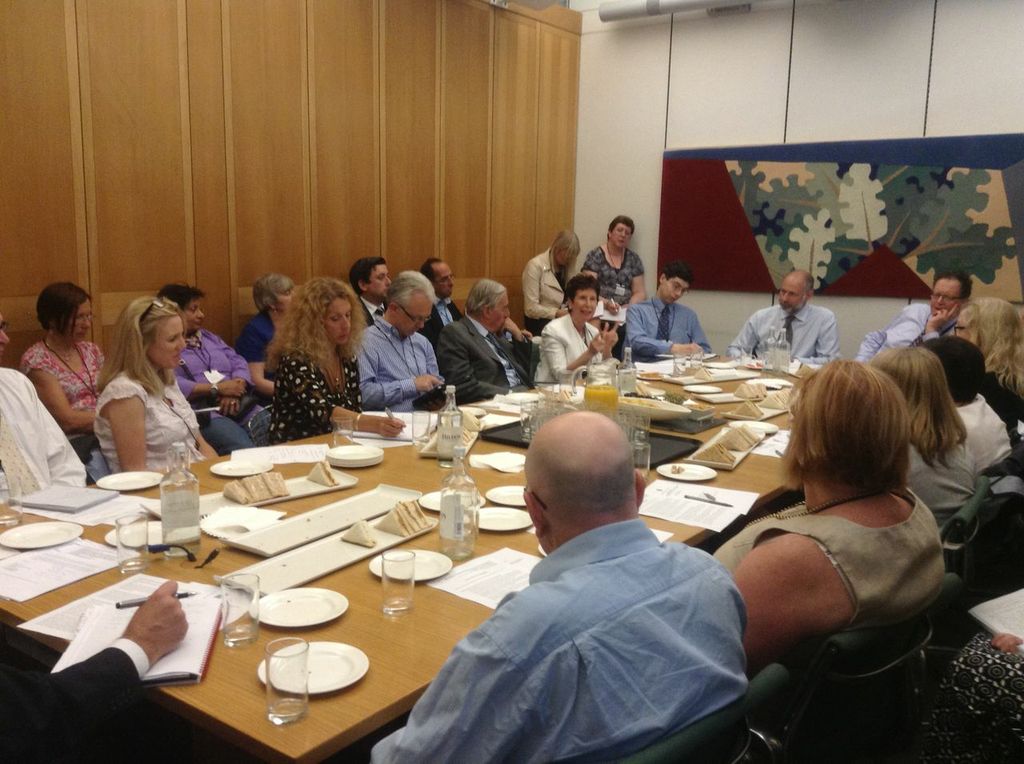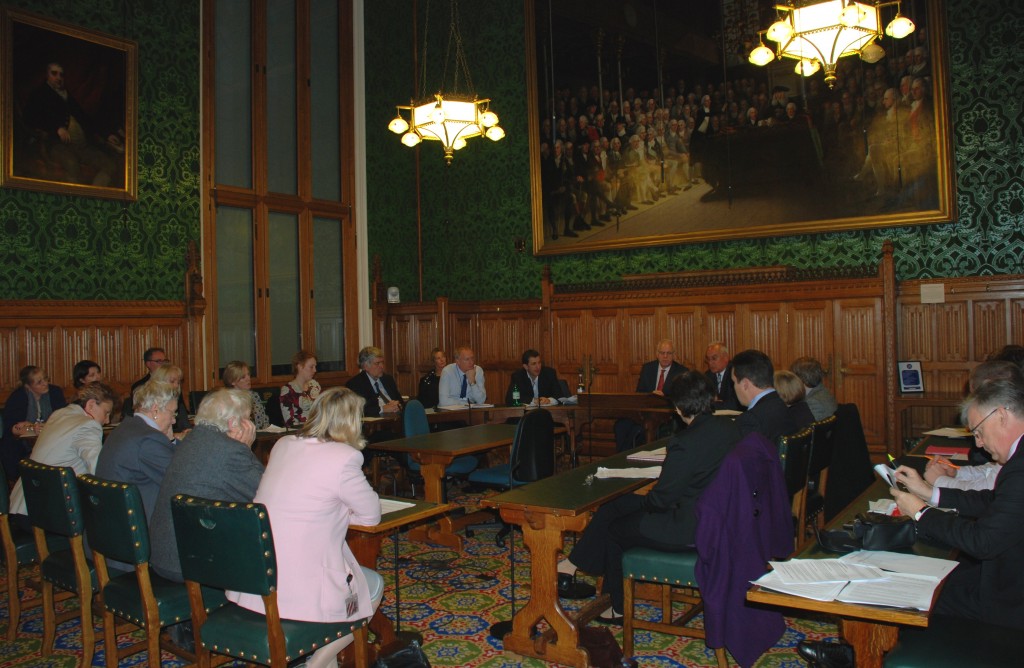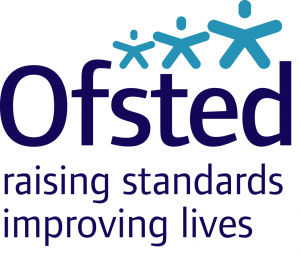On the 10th July 2013, the APPG for Education met for its AGM, during which it discussed Primary School Accountability and Assessment. The meeting was addressed by Benedict Coffin from the Department for Education’s Assessment Division, and Avril Newman, headteacher of the Sir William Burrough School in Tower Hamlets. These are the minutes of that meeting:

Fabian Hamilton began the AGM by reading the APPG’s apologies and announcing the election of officers.
Fabian Hamilton MP and Nic Dakin MP were elected as Co-Chairs of the Group. Martin Horwood MP and Baroness Perry were re-elected as Vice-Chairs of the Group.
Fabian Hamilton next introduced Benedict Coffin, who leads the team in the DfE responsible for policy on statutory assessments in primary schools, and Avril Newman, head teacher of Sir William Burrough School in Limehouse.
Benedict Coffin began with a background to government policy on primary school accountability and assessment. Lord Bew led an independent review in November 2010, which set the framework for the Government’s position. He engaged with a range of stakeholders – the catalyst issue was the National Curriculum tests, and the way they were used, particularly for league tables. The school accountability system was not perceived to be fair. The Bew Review recommended that accountability should be as much about pupils’ progress as attainment. While it is unquestionably important that pupils should attain well, progress measures are a better indicator of an effective school – or of coasting schools. A consultation on accountability will be published soon (on 17 July), setting out the Department’s proposals for accountability and assessment under the reformed National Curriculum. Progress and attainment should remain central, as the Bew review recommended. On 13 June Michael Gove confirmed that ongoing assessment will be separated from the statutory assessment prescribed by the DfE. DfE is not planning to set out a detailed roadmap of how schools should assess pupils – they must develop their own curriculum to meet National Curriculum requirements at the end of each key stage. How schools report to parents will for them to determine. There is a risk that primary schools will be cut adrift, where there is not a capability to design something that would work. DfE wants to ensure that support is available for schools, and will take a positive role. They want to work with teaching schools, subject experts, professional associations and education publishers to share effective practice. Statutory assessment for KS2 is a matter of balancing internal and external testing, and the government proposals will be included in the consultation document. Accountability will remain with assessment, with attainment and progress at its heart.
Avril Newman introduced her school, Sir William Burrough School, which has 350 pupils, mainly with English as a second language, located in an area which sits at the top of the deprivation index. The school has just had its SATs results, for which the threshold has been moved up by 6 points. She would welcome a system where thresholds remained the same, without moving goalposts, which cause anguish for many pupils and parents, and for teachers who have Ofsted and league tables causing pressure. As a National Leader of Education, Avril partners with schools that don’t do as well. Michael Gove has said there is a need for more data, and that there should be movement away from current benchmarks to a rich and nuanced benchmark of assessment. This is already done at Sir William Burrough School. If the aim is to know where all pupils are at a specific moment, children move so quickly that league tables fall out of date almost straight away, so a new system should be digitised. This shows all children and teachers at exactly what stage a pupil is, what the next level of challenge is, even what the next work assignment should be. Something similar is done by her school – a powerful, adaptive tool that can give parents, teachers and others an up-to-date look at progress. The only learning of any value is that that takes a pupil beyond their current level of knowledge. An adaptive system would allow for this kind of ZPD. Poor assessment systems work against teachers, take them away from giving great lessons and bring the pressures of Ofsted. Teachers need the joy of teaching, and need a system to be developed that gives accurate, useful answers.
Fabian Hamilton thanked the speakers, and stated that what he had seen in schools in his constituency gave him hope for the next generation of primary school children. He then opened the floor for questions.
Lord Boswell would welcome better structured assessment in terms of value added. He asked to whom accountability is to, and what it means – if the system were more complex, there would be a need to train people to use it well.
Avril Newman suggested that it was incorrect to believe that because a pupil’s ethnicity is different, or they are on free school meals, that this will influence their results. Children start life at different points, but we need to help them all develop.
Benedict Coffin agreed, saying that since 2010 DfE has stopped publishing ‘contextual value added’, and just doing ‘value added’. It is important to pull out more data on innovative forms, and compare with similar schools.
Fabian Hamilton also agreed, stating that schools need to encourage knowledge and enthusiasm.
Andrew Thraves stated that the Secretary of State claimed that it was important to engage with stakeholders, and requested that DfE do so. Everyone talks about personalised learning, but there is a need for personalised assessment too. Standardised tests need to be looked at, and teaching schools could be made specialist teaching schools for formative assessments to train teachers on this.
Ian Grant was interested in Avril’s points about the immediacy of monitoring attainment, and asked what other schools’ experience of this was, and whether her approach was unusual at present.
Madeleine White told the group that Whizz offered adaptive assessment and learning and engaged parents as well, which is important. Schools are not aware of what is out there, and central procurement might not be the best way of doing things, but it does give schools knowledge of some products. She asked how this could be managed.
Benedict Coffin saw DfE’s role as to facilitate and ensure support is available for schools, rather than to force them down a certain path. As feedback changes, it gives the profession an opportunity to change things too.
Avril Newman stated that immediacy was a deal-breaker. She noted that when schools have a range of staff trained in different systems, outdated methods of assessment are often held on to (“ghosts in the machine”). She would like to see a standardised international system, as testing abroad is completely different.
Andrea Carr said that National Curriculum levels for the marking process were never statutory, but were adopted, and asked what the Secretary of State referred to regarding mandatory KS1 assessment arrangements.
Benedict Coffin explained that the key to fair and balanced assessment is where the baseline for progress is measured from, and this DfE will consult on proposals for KS1 assessment.
Rachel Jones was interested in progress measures, how self-directed might work, noting that inspection and progress measures require children to work hard. She asked how DfE was working with Ofsted to promote assessment and ensure it was right.
Caroline Wright noted that a challenge was getting parents to understand what ‘Level 4’ actually means, and that there would be a need to explain what any new replacement levels would be.
Dominic Savage stated that the moment a single international system was established and agreed upon by all stakeholders, it would be out of date. He disliked the idea of central procurement. All teachers need training to understand accountability. He would not like a system where everyone was told how to do specific things. Avril Newman agreed.
Benedict Coffin acknowledged that schools’ freedom to develop their own curriculum, assessment and reporting approaches would make it more difficult for Ofsted to inspect, and that too much bureaucracy in record-keeping would be bad. Schools need to be sensible and think ahead to using future technologies. Ongoing progress measures don’t become important, the definition of progress changes.
Fabian Hamilton leaves the Chair and invites Lord Boswell to act as Vice-Chair for the rest of the meeting.
Lord Boswell suggested that in terms of external assessment, there would be new pressures as the national system changed.
Benedict Coffin noted that statutory National Curriculum Tests will remain an important part of benchmarking, and if commercially available tests are bought into by a lot of schools, they will be given more credibility.
Ian Grant suggested that devolving everything to schools could be problematic; the requirements would put huge pressures on teachers and take away from teaching quality. Parents want something of good quality, that they don’t have to go through commercial channels for themselves, and our society should provide this.
Dominic Savage noted that if the nation funds the education system, at certain points it must be judged to be effective and efficient. It is more important that parents have confidence in teachers, and that pupils are moving forward the best way they can.
Lord Boswell added that if parents can be given an idea of what is going on, a system will work on a personal level.
The point was raised that there can still be a situation where schools content with SATs at the expense of children, and a shorthand ‘Level’ is given to parents, who don’t know what it means.
Avril Newman stated that schools have been subjected to years of political intervention, and staff can be set in their ways.
Dominic Savage added that Ofsted’s approach was changing for the better, with inspectors increasingly concerned with technology, knowing why data was collected, what it means and if it matches assessments.
Lord Boswell also suggested that Ofsted was part of the compliance culture, with inspectors also set in their ways.
Andrew Thraves mentioned that teacher training was important, and was often forgotten.
A comment followed that a formal procurement process is a problem, that a tender process can be fair and transparent, but that producers who create a range of material could find catalogues acting as gatekeepers, which would impact creativity.
Benedict Coffin said that DfE would do whatever needed to encourage diversity, and was not looking at central procurement.
This was followed up by a question on whether there was a danger that if products became commercially available, the ‘usual suspects’ would form the usual supply chains, and exclude small entrepreneurs.
Andrea Carr suggested that there might be a role for DfE to interface with BESA to develop solutions and skillsets to help.
Benedict Coffin agreed. The DfE are looking to set out principles for what a good assessment will include in the consultation.
Dominic Savage added the fact that people are enthused and challenged could lead to better assessment systems and product development. It would be wrong to allow the sale of products that we are talking about as commodities.
Lord Boswell drew questioning to a close, thanked everyone for their attendance and said he felt the event was encouraging.



